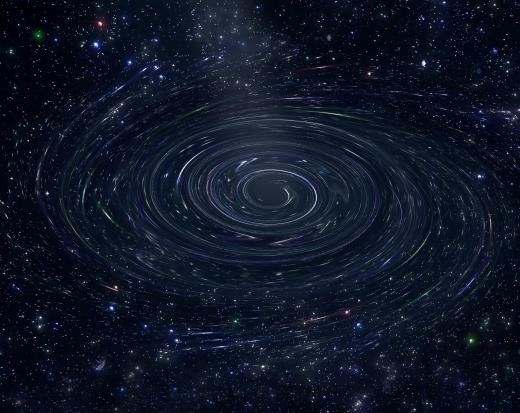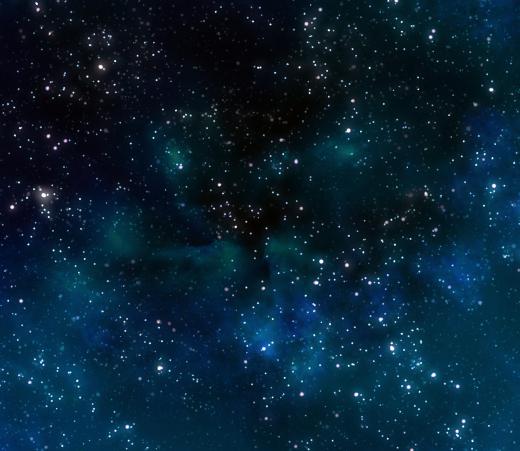What Does the Sun Revolve around?
Since the earliest times in recorded history, the question of around which astronomical body the Sun revolves has been a point of contention amongst astronomers, scientists, and laymen. Even today, many people still mistakenly believe that the Sun revolves around the earth or its own axis. The question of what the Sun revolves around, however, has two correct answers based on the definition of the word revolve. The Sun revolves around a point in our solar system called the barycenter, which is the center of mass of the solar system, as well as revolving around the center of our galaxy, the Milky Way.
The word "revolve" refers to the motion of one object around another object or around a point. It is similar to and often used interchangeably with and confused with "rotate," but in astronomy, the two words have different meanings. Rotation describes the spinning of an object around a line passing through the object called an axis. "Rotate" is another word for spin. "Revolve" means to orbit. The Earth rotates on its axis, but revolves around the Sun.

The center of mass of a system of astronomical bodies is called the barycenter. This is the point around which all the planets and other bodies in our solar system, such as comets and asteroids, revolve. The gravitational attraction between the Sun and the other objects in the solar system causes the Sun to revolve around the barycenter. This movement is very slight when observed in the context of the entire solar system, so slight in fact that in models of the solar system showing the movement of the planets around the Sun, the Sun's own revolution around the barycenter is essentially indistinguishable since the barycenter is very close to the center of the Sun itself.

The Sun and the solar system also revolve around the center of our galaxy, the Milky Way. The period of this revolution is extremely long, taking approximately 200 million years. No one is certain of what lies at the center of the galaxy, however, so this aspect of the question of what does the Sun revolve around has no clear answer. Many astronomers believe that at the center of many galaxies, including our own, are huge black holes, but this theory has not been proven.
AS FEATURED ON:
AS FEATURED ON:













Discussion Comments
@croydon - Well, I just want to point out that not everyone did. There were plenty of cultures where they realized that the moon and the sun were giant spheres, for example, simply by figuring out why the moon goes through its cycle the way it does, and from there it's not much of a step towards the idea that the Earth is going around the sun and not vice versa.
@bythewell - I guess it's a good thing that our solar system is thought to take around 200 million years to revolve around the galaxy then, because that means we've done it several times at least since the Earth was made and hopefully have a relatively stable orbit.
I always find it astonishing that astrophysicists are able to calculate these things and even prove them based only on what we are able to perceive from the Earth. I mean, there was a reason everyone took for granted that the sun revolves around the Earth not so long ago.
I guess it makes sense that a massive black hole exists in the center of the galaxy. I don't know a huge amount about astrophysics, but I imagine you would need something with tremendous gravity to maintain the spin of an entire galaxy, or even to set it into motion in the first place.
I wonder if there are failed galaxies out there, where there wasn't enough inertia to propel the solar systems around and they were all sucked in. Since they think a black hole would grow in proportion to the amount of mass it swallows, that's a rather disturbing thought.
Post your comments